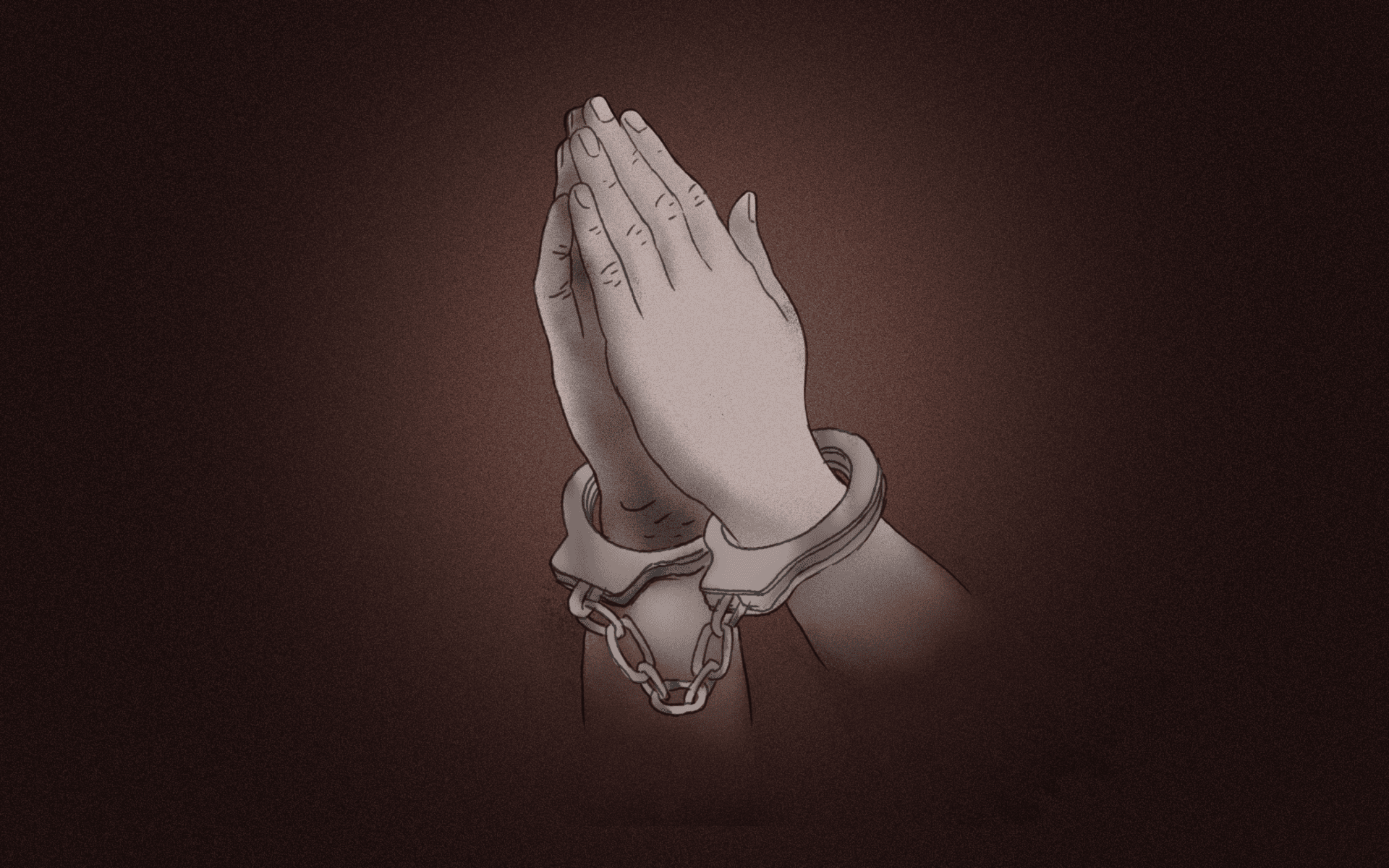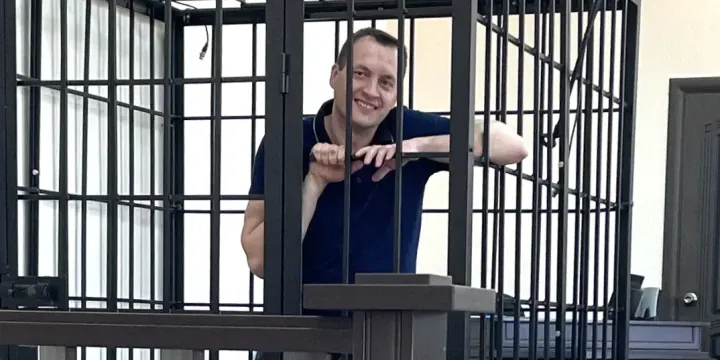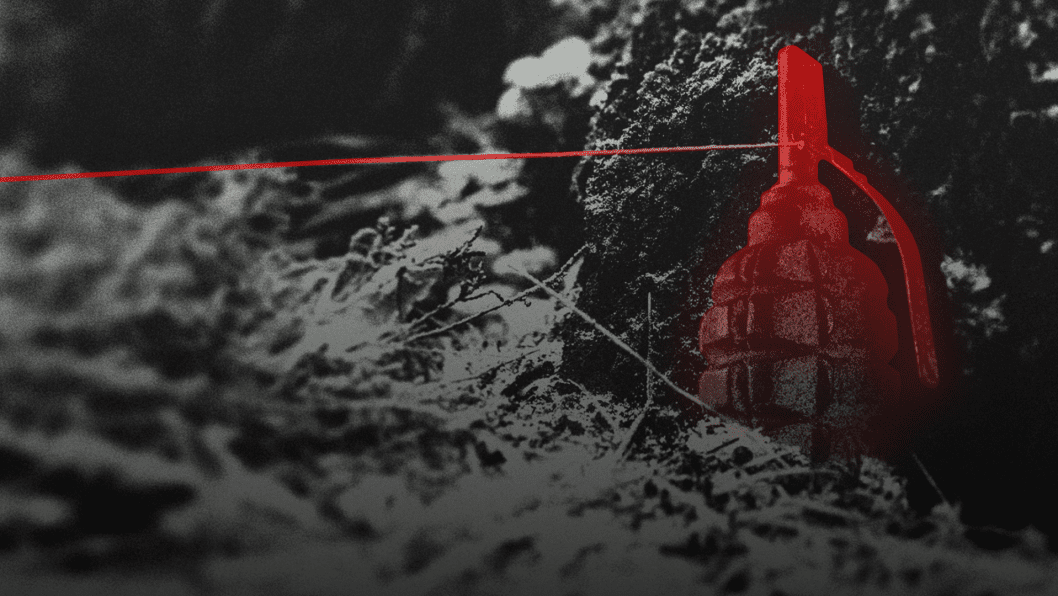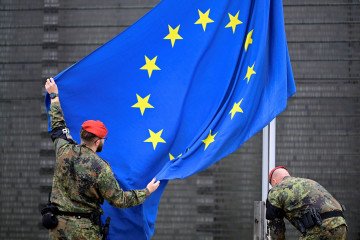- Category
- World
How Non-Orthodox Religious Groups Like Mormons and Jehovah’s Witnesses Are Surviving Russia’s Crackdown

In Russia, religious groups that do not belong to the Orthodox Church are often framed as foreign influences and regarded less as spiritual communities and more as threats to national security.
After the collapse of the Soviet Union, something of a spiritual big bang took place across the former USSR. Decades of militant and repressive atheism gave way to a surge of religious movements. Baptists, Pentecostals, Mormons, Jehovah’s Witnesses, and dozens of others entered newly independent republics, offering everything from Bible study to meditation.
In Ukraine, these groups found space. Even in a country where Orthodox Christianity remains dominant, its constitution protects religious freedom. Nontraditional faiths might not be mainstream, but they aren’t harassed. They operate, organize, and worship without fear.
In Russia—and even more so in Russian-occupied Ukraine—the story is very different. What began as suspicion toward esoteric faiths has shifted into systemic persecution. The Kremlin’s repression of religious minorities reveals how it deals with anything it doesn’t control: label it extremist, isolate it, and shut it down.
“Terrorists and undesirables”
At the center of this machinery is the Russian Orthodox Church, which functions less as a spiritual institution and more as an instrument of state power. Over the past two decades, it has aligned itself with the Kremlin, the security services, and the military. Russian Orthodox Patriarch Kirill has openly blessed the war in Ukraine and framed it as a holy mission.
Alternative belief systems aren’t tolerated—they’re treated as threats to national identity and security.
At a July 24, 2024, hearing of the US Helsinki Commission titled "Russia's Persecution of Ukrainian Christians," Dr. Catherine Wanner testified on the Kremlin’s systematic targeting of evangelical communities in Russian-occupied eastern Ukraine.
“There is no place for Protestants in the Russian World,” said Dr. Wanner. "They are apostates to their faith and traitors to their nation precisely because they have abandoned Orthodoxy. The Russian World ideology justifies the repression of religious minorities and privileges Russian Orthodoxy as a state-protected guardian of these traditional values of public morality and social and political order.”
Russia’s 2002 extremism law, originally framed as an anti-terror measure, is now routinely used to suppress peaceful religious activity. It allows authorities to ban groups for vaguely defined offenses like “violating public order” or engaging in “extremist” behavior—terms flexible enough to target nearly anyone.
In parallel, the 2015 law on “undesirable organizations” gives prosecutors sweeping power to outlaw any foreign-linked group deemed a threat to Russia’s “constitutional order.” Once labeled undesirable, an organization’s members can be prosecuted, its materials banned, and its property seized—without ever needing to prove harm.
Though originally aimed at civil society groups and foreign NGOs, the law has also increasingly been used to target religious organizations.
Together, these laws form the legal framework of Russia’s religious persecution. And in occupied Ukraine, that system has been exported wholesale. Churches shuttered. Pastors detained. Congregations forced underground. Because in Russia, belief isn’t protected—it’s permitted to the loyal.
Russia keeps destroying churches in Ukraine. pic.twitter.com/BasEgFKwD4
— UNITED24 Media (@United24media) August 20, 2024
Evangelicals
In Russian-occupied Ukraine, Evangelical and Pentecostal Christians face severe persecution, reminiscent of Soviet-era repression. Pastor Dmitriy Boydu, head of Melitopol's "Word of Life" church, experienced this firsthand. After choosing to stay and support his community during the 2022 invasion, he was abducted by Russian forces.
Detained in an abandoned police station, Boydu endured threats of execution and accusations of being an American spy. He recounted being told, “They hate three kinds of people: Americans, Evangelicals, and Nazis. And he told me that I was all three to them. I hit the jackpot.”
Meet Pastor Dmitriy Boydu, who returned home to establish evangelical churches in southern Ukraine, but then Russia invaded his hometown. pic.twitter.com/A8m3yvtu8z
— UNITED24 Media (@United24media) April 11, 2024
Following his release, Boydu discovered that his church had been seized and repurposed as a police station by the occupying forces. The remaining members of his congregation now worship secretly, gathering in private homes to avoid detection. This clandestine practice mirrors the underground worship methods employed during the Soviet era, highlighting a disturbing regression in religious freedom.
Boydu's experience underscores the broader strategy of the Russian occupation to suppress non-Orthodox religious groups, viewing them as threats to their ideological control. Despite the risks, evangelical and Pentecostal communities continue to practice their faith covertly, demonstrating resilience in the face of oppression.
Mormons (The Church of Jesus Christ of Latter-day Saints)
In 2016, Russia enacted the "Yarovaya Law," a set of legislative amendments aimed at countering terrorism. Among its provisions, the law imposed stringent restrictions on missionary activities, effectively banning public proselytizing outside of officially recognized religious sites. This legislation significantly impacted the operations of The Church of Jesus Christ of Latter-day Saints (LDS Church) in Russia, which had been officially recognized by the Russian government in 1991.
Before the law, Mormon missionaries actively engaged in public outreach, including door-to-door evangelism and street preaching. However, the Yarovaya Law confined such activities to registered religious buildings, prohibiting missionary work in private residences and public spaces. In response, the LDS Church reclassified its missionaries in Russia as "volunteers," redirecting their focus toward community service and humanitarian efforts.
Despite these challenges, the Mormon community in Russia continues to adapt. Local congregations have taken on greater responsibility for leadership and religious instruction, while maintaining discreet connections with the global LDS Church. Through service-oriented initiatives and a commitment to their faith, Russian Mormons persist in their religious practices, navigating the complexities imposed by the current legal framework.
Jehovah’s Witnesses
Jehovah’s Witnesses are a Christian denomination known for their door-to-door ministry, political neutrality, and refusal to serve in the military. In Russia, that neutrality has made them a target. With an estimated 175,000 members across the country, they’ve been active in cities and small towns alike—until the state moved to erase them.
In 2017, Russia banned Jehovah’s Witnesses as an “extremist organization.” Since then, law enforcement has regularly raided homes, detained worshippers, and filed charges based solely on peaceful religious activity. Nearly 650 Witnesses have been charged under extremism laws, with more than 100 currently in prison, according to the US Commission on International Religious Freedom.

Despite the crackdown, the community survives underground. Worship continues quietly in private homes and encrypted online meetings. Families support detained members, and documentation of abuses is meticulously collected and shared with international watchdogs. Even in prison, many Witnesses maintain their spiritual routines, turning persecution into quiet defiance.


-27ef304a0bfb28cb4215e5deede4a665.png)
-46f6afa2f66d31ff3df8ea1a8f5524ec.jpg)

-605be766de04ba3d21b67fb76a76786a.jpg)
-2c683d1619a06f3b17d6ca7dd11ad5a1.jpg)

